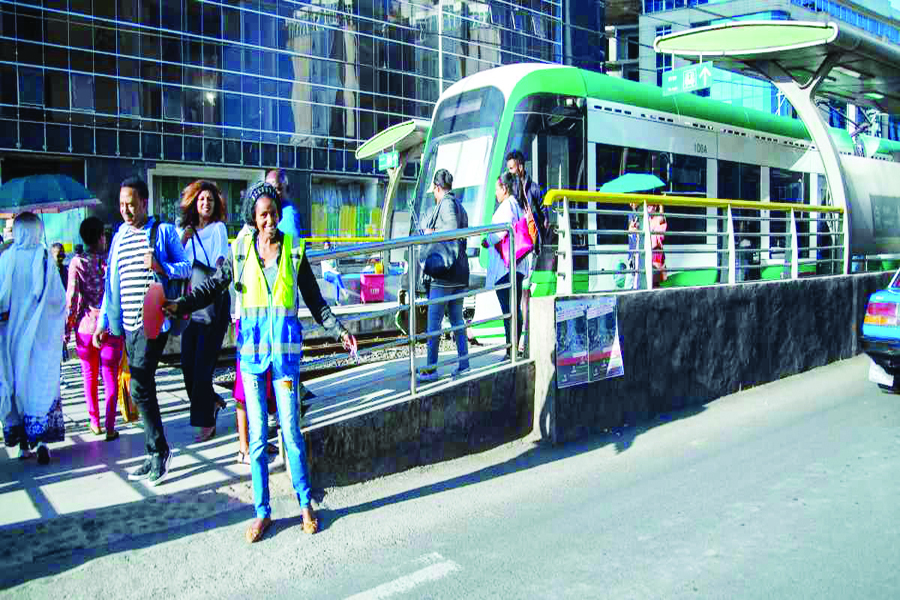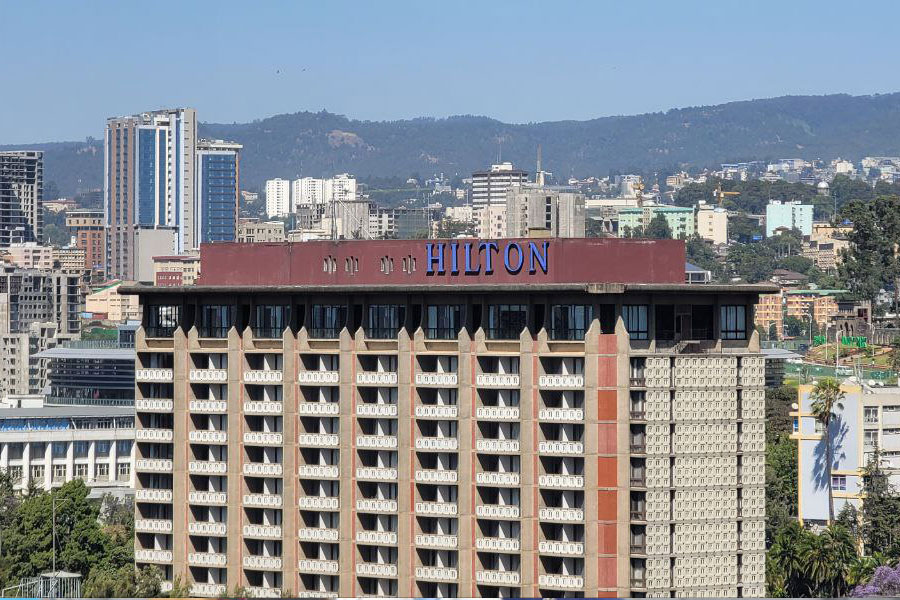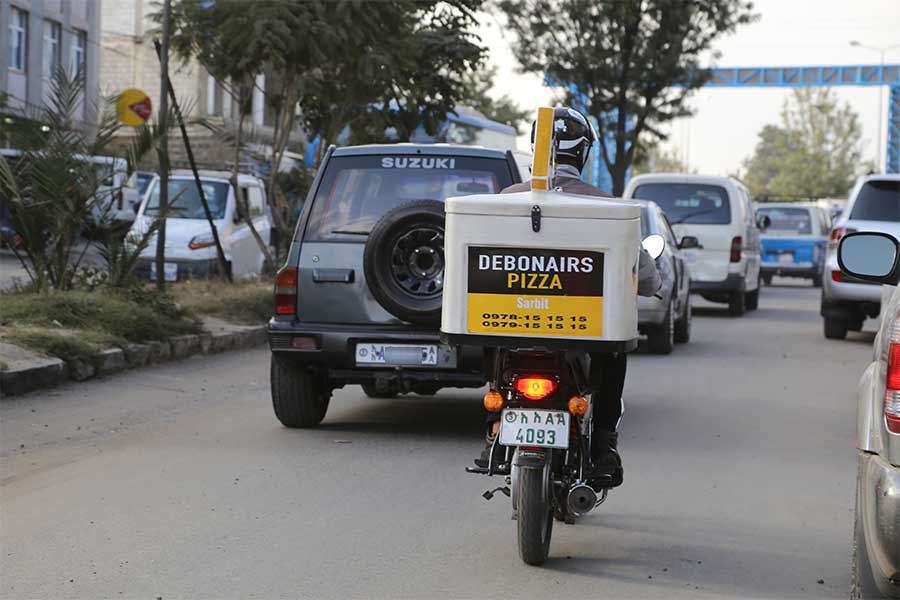
Agenda | Aug 18,2024
Jun 8 , 2019
By Habtamu Girma
As I was browsing Facebook, I came across a picture of a restaurant menu from a quarter of a century ago. It looks like a menu from an average Ethiopian restaurant. One look at the list of foods reminded me of my childhood. It makes you nostalgic about our economic life.
But one wonders if those times were in fact good times, in terms of the ease of economic life. Those price tags on the menu could be misleading if one takes prices at face value and misses important elements while comparing then and now.
Even from the outset, can a price tag differential be a proxy variable on the cost of living in Ethiopia, now versus 28 years ago? And how can we possibly adjust the geometric increase in prices with the almost arithmetic increase in our average income at the national level?
A glance at the price tag in that menu from 28 years back brings one's mind in sharp focus to current food prices. Given that food accounts for almost 70pc of an average household’s income in urban Ethiopia, comparing the menus can give a rough estimate of how costlier life is today than it was then.
But without some factors worth considering, the food price differential by itself would be all too nominal. It cannot give the right estimate on the cost of living differential.
For a fairer evaluation of today's economic life, one has to consider important factors that depict the right economic dynamics since then. In this regard, at least in the Ethiopian context, two factors are worth mentioning: the ease of earning money and the scarcity premium.
As a matter of fact, the cost (exertions) of earning one Birr then and now is different. For instance, a civil servant’s position that used to earn 600 Birr then is now earning 2,400 Birr today. The cost of earning Birr is four times cheaper now. That is because the number of hours worked has not changed, while salaries have increased four fold.
To arrive at a balanced judgment of the cost of living, one needs to adjust for a scarcity premium as another deflating factor. Nature is much more exploited today than 28 years ago. Hence, the scarcity premium must be added to the final price of goods and services consumed.
One may argue the margin of exploitation of nature is compensated by technical advancement or integrating know-how. This contributes to an efficient production system, hence helping lift the stress on the bounty of nature. Indeed, this argument may hold water.
However, given the production system in Ethiopia is hardly coping with the rate of scarcity, we can't escape the rising cost of living. That is manifested by the average income of people lagging behind what it costs them to live.
In my opinion, the rising cost of living today is a result of the prevailing outdated production system. The implication is clear: to arrest the rising cost of living, rethinking the way we produce and revisiting our conception of work is required.
For the average Ethiopian, the understanding of work is still stuck in the classical conception of work. That is seeing work much more as physical exertion than mental exertion. And that defines the Ethiopian way of measuring the value of work and workers. For many of us, work is how long we spend in the office or workshop. Hard workers are thought to be those who stay the longest hours at the office. We rarely measure work by efficiency and productivity.
I suggest the cure from the economic headache caused by a rising cost of living is revisiting our work culture and our conception of work. That, in turn, results in making our production system more efficient. That is the only way that will help us catch up to the rising scarcity premium and help us survive economic hardships. That is what has to define the course of our future.
PUBLISHED ON
Jun 08,2019 [ VOL
20 , NO
997]


Agenda | Aug 18,2024

View From Arada | Mar 18,2023

Fortune News | Jul 07,2024

Radar | Jan 11,2020

Advertorials | Sep 05,2025

Editorial | Dec 02,2023

Fortune News | Apr 03,2023

Featured | Nov 23,2019

View From Arada | Oct 16,2020

Radar | Dec 05,2018

Photo Gallery | 180426 Views | May 06,2019

Photo Gallery | 170626 Views | Apr 26,2019

Photo Gallery | 161675 Views | Oct 06,2021

My Opinion | 137279 Views | Aug 14,2021

Dec 22 , 2024 . By TIZITA SHEWAFERAW
Charged with transforming colossal state-owned enterprises into modern and competitiv...

Aug 18 , 2024 . By AKSAH ITALO
Although predictable Yonas Zerihun's job in the ride-hailing service is not immune to...

Jul 28 , 2024 . By TIZITA SHEWAFERAW
Unhabitual, perhaps too many, Samuel Gebreyohannes, 38, used to occasionally enjoy a couple of beers at breakfast. However, he recently swit...

Jul 13 , 2024 . By AKSAH ITALO
Investors who rely on tractors, trucks, and field vehicles for commuting, transporting commodities, and f...

Nov 1 , 2025
The National Bank of Ethiopia (NBE) issued a statement two weeks ago that appeared to...

Oct 25 , 2025
The regulatory machinery is on overdrive. In only two years, no fewer than 35 new pro...

Oct 18 , 2025
The political establishment, notably the ruling party and its top brass, has become p...

Oct 11 , 2025
Ladislas Farago, a roving Associated Press (AP) correspondent, arrived in Ethiopia in...

Nov 2 , 2025
The National Bank of Ethiopia (NBE) has scrapped the credit-growth ceiling that had s...

Nov 2 , 2025 . By SURAFEL MULUGETA
The burgeoning data mining industry is struggling with mounting concerns following th...

Nov 2 , 2025 . By YITBAREK GETACHEW
Berhan Bank has chosen a different route in its pursuit of a new headquarters, opting for a transitional building instea...

Nov 2 , 2025 . By BEZAWIT HULUAGER
Nib International Bank S.C. has found itself at the epicentre of a severe governance...